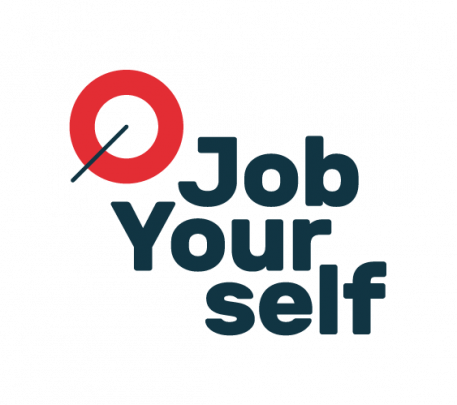There are fundamental difference between the status of an employee and that of a self-employed worker, whether in terms of the legal, cultural, financial or logistical aspects. Let us take you through the main ones!
1. The work setting
An employee works under an employment contract, which defines the obligations of the employer and the employee, particularly in terms of the salary, working hours, leave, etc. A self-employed person works on the basis of a business contract instead. They are responsible for carrying out a specific task, with no subordinate relationship to any particular employer. It is precisely this subordinate relationship, involving power and control, that determines whether you're working as an employee or are self-employed. The facts speak for themselves!
Employees follow instructions and processes established by the employer, while self-employed people enjoy great autonomy and freedom in their decisions, both in terms of projects and their working methods.
2. Remuneration
In terms of remuneration, employees benefit from a salary, which is often fixed at an amount they know in advance (sometimes this is increased through variable income, in line with fixed commissions). Self-employed people, however, benefit (or not) from remuneration that is dependent on the income generated by their activities.
For employees, the salary is fixed by the employment contract and the employer is responsible for withholding the tax and social security payments. Those working as self-employed instead need to plan ahead and make their own social security contributions and tax payments.
3. Social protection
There are significant differences in social protection between the two statuses. Let's look into the key aspects:
3.1 Health and disability insurance
For employees, the employer will pay out sick pay corresponding to their normal salary for the first 30 days. Then, until the 12th month, employees receive roughly 60% of their gross salary.
Self-employed workers receive compensation from the first day of illness, as long as it lasts at least eight days. The eight-day period begins on the date the incapacity is reported, which will be indicated on the medical certificate. The amount of the compensation varies between 47 and 78 euros per day, depending on the worker's civil status. They have the option of taking out additional insurance to increase their cover.
3.2 Retirement pension
Pensions for employed and self-employed workers is calculated in the same way: on the basis of the social security contributions paid and the number of years they've been working. However, as self-employed people generally pay fewer social security contributions, their pension is often lower.
Employees can benefit from an addition pension from their employer (collective insurance). Self-employed workers can voluntarily register with specific pension plans such as the Pension Libre Complémentaire pour Indépendants (PLCI).
3.3 Unemployment benefits
Employees are entitled to unemployment benefits under certain conditions. These benefits decrease in size depending on their civil status, previous situation or the duration of unemployment. The amount is calculated based on an average salary, with an upper limit.
Self-employed people are not entitled to unemployment benefits. However, there are "bridging rights" in the event of bankruptcy or forced termination of business, which offer a fixed amount for a limited period of time. In addition, if the self-employed person was entitled to unemployment benefits before becoming self-employed, they retain this right for 10 years. This means that if the self-employed worker stops their activity before the tenth year and they were entitled to unemployment benefits before becoming self-employed (either because they were unemployed or because they were employed and met the conditions to receive unemployment benefits), they can receive compensation for unemployment.
3.4 Workplace accidents and occupational diseases
For employees, coverage is mandatory and at the expense of the employer. For the first 30 days, the employer continues to pay the normal salary. Then, until the 12th month, employees receive roughly 90% of their annual salary (capped).
Self-employed workers do not have any specific basic coverage for workplace accidents, so they must take out private insurance.
3.5 Family and health care benefits
There is no difference between the status of a self-employed worker and an employee for family and health care benefits, and birth and adoption bonuses. The amount of the family benefits is the same for everyone, and varies depending on the region (Flanders, Wallonia, Brussels).
3.6 Maternity and paternity leave
Employees are entitled to 15 weeks of maternity leave and 20 days of paternity leave to be taken within four months of the birth.
Self-employed workers are also entitled to maternity and paternity leave. For maternity leave, the duration is 12 weeks, of which three weeks are mandatory. During this period, self-employed people receive a weekly benefit of a fixed amount. For paternity leave, self-employed people are entitled to 20 full days or 40 half days and they receive a fixed allowance per day.
4. Organisation of work
Logistically, employees' working hours are often fixed by the employer, although they may be flexible depending on the sector. Self-employed people, however, have complete flexibility over their working hours, subject to their clients' demands.
4.1 Paid leave
Employees are entitled to a minimum of 20 days' paid leave per year (for a full-time position) as well as double holiday pay. Self-employed people, however, don't have any paid leave and need to plan ahead financially to cover any time off.
4.2 Risks and responsibilities
Self-employed workers assume all risks related to their activity, including financial losses. They must also manage their own clients and marketing. In contrast, employees are covered except in the event of serious misconduct.
4.3 Career development
Employees often benefit from training funded by their employer, ensuring they can develop their skills, while self-employed people must invest in their own training and professional development. However, there are grants available in the Brussels Region which can reduce the cost of training.
5. Cultural and psychological aspects
5.1 Work-life balance
A paid job may provide clearer separation between your personal and professional life, with set working hours. For self-employed workers, this balance can be harder to maintain, with a tendency to work outside usual working hours in order to meet clients' demands.
5.2 Mental burden
For employees, the mental burden is often centred around carrying out tasks and meeting the deadlines set by the employer. For self-employed workers, this not only includes work but also company management, finding clients, finances, etc.
5.3 Team spirit
Employees are often part of a team, which can strengthen the feeling of friendship and belonging. Self-employed workers are often inclined to work alone, which can lead to a sense of isolation.
5.4 Professional satisfaction
While employees may feel reassured by the stability and social advantages employment offers, they may feel a certain dissatisfaction due to the hierarchy or monotony of a job. In contrast, the vast majority of self-employed workers emphasise that they experience great satisfaction regarding the feeling of freedom.
Conclusion
Choosing between the status of an employee or self-employed largely depends on each individual's personal aspirations, risk tolerance and career objectives. Employees benefit from greater security and more comprehensive social protection, while self-employed people enjoy more freedom and a higher earnings potential, but this comes at the price of an increased level of risk.
It's important to note that the information provided, particularly the amounts and percentages, may change. We advise you to check the most recent data with the official bodies before making your decision.
Each individual must asses their own needs, their personality and their objectives to determine which status will suit them best. This choice can have a significant impact on your personal and professional life, so it is crucial you make a fully informed decision.rsonnelle, il est donc crucial de la prendre en toute connaissance de cause.
Who can help me ?






